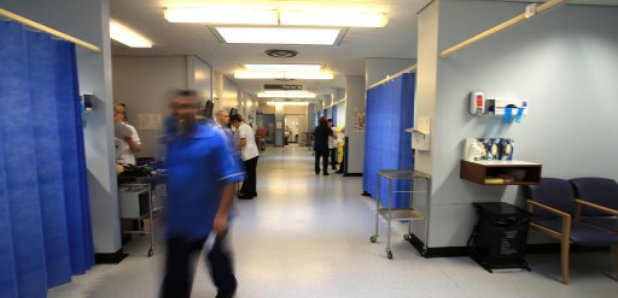NHS Scotland infection monitoring not adequate, health secretary warned
3 May 2019, 08:23

Scotland's Health Secretary has been warned of serious concerns around the monitoring of infections in NHS hospitals.
The Scottish Parliament's Health and Sport Committee said problems may only come to light once patients are infected.
It was also unable to identify if proactive testing of ventilation and water systems takes place, except for legionella.
Committee convener Lewis Macdonald raised the concerns in a letter to Jeane Freeman as part of its inquiry into healthcare environments in Scotland following infection outbreaks in hospitals linked to deaths.
The letter highlights anonymous evidence submitted to the committee suggesting new-build hospitals have "defaulted on vital systems", which Mr Macdonald said is "deeply concerning".
He questioned if the Government would hold a review of recently built facilities to assess compliance with installation, maintenance, decontamination and monitoring of vital systems.
The Labour MSP also asked for a separate review to ensure all high-risk clinical areas have appropriate equipment for minimising infection.
Mr Macdonald called for assurances that the NHS maintenance backlog is being given the priority and funding needed, after Audit Scotland said in 2017-18 the NHS estate faces £889 million of work needing done.
It added there are believed to be 300 outstanding maintenance jobs at the Queen Elizabeth University Hospital in Glasgow, which is around four years old.
NHS plant rooms must become routine areas for inspection after a submission to the committee suggested they were "infested with pigeons and cockroaches" due to lack of clarity over who was responsible for cleaning and maintenance.
The level of anonymous submission was said to raise concerns, while the delay in appointing an independent national whistle-blowing officer was questioned along with further calls for the creation of a reporting line for NHS whistle-blowers.
The letter also questions the depth of staffing shortages in cleaning, infection control and microbiology, whether a national electronic surveillance system would improve infection knowledge and the need for clarity over the roles of the various watchdogs.
Concerns were raised over perceptions of independence of the review into the Queen Elizabeth University Hospital following deaths linked to infection as those appointed to chair the review are former NHS Scotland employees.
Mr Macdonald said: "The recent incidents of infection in Scotland's hospitals will have been alarming for many members of the public.
"Although the evidence shows that the prevalence of health problems acquired as a consequence of the healthcare environment in Scotland is relatively low, the committee's inquiry has shown there are several areas of concern.
"Most crucially, it is clear the current monitoring and surveillance methods are not adequate.
"Swift action must be taken to address these issues and we want to ensure proactive testing is undertaken so that incidents of infection are identified early to prevent outbreaks and reduce risk to patients to an absolute minimum."
A Scottish Government spokesman said: "The recent infection incidents have had a devastating impact on the families involved and we sympathise with all those affected. That's why we are clear that all health boards must make infection prevention and control an absolute priority each and every day.
"There are robust measures in place across the NHS to prevent infections and other harms, and there have been substantial improvements made over the last decade in terms of a reduction in overall hospital infection rates across Scotland.
"Health Protection Scotland has developed national infection prevention and control policies, including mechanisms for escalation and management of outbreaks.
"They work in partnership with Health Facilities Scotland to ensure that good infection prevention and control is built into the design of new and existing healthcare premises, and based on the best available evidence."






















